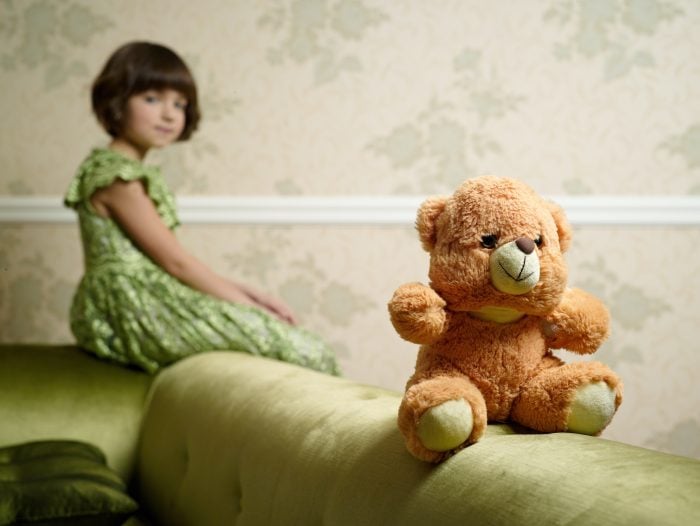I grew up without a father.
Yes, I know it takes two to tango, and I wasn’t exactly a sperm donor’s child, but in some ways, I was.
When I was conceived, my biological father told my mother he wasn’t interested in being a father—then he left. My birth certificate clearly states, “father unknown.”
My single mother raised me, and throughout the years her boyfriends were in my life. But I always wondered, “Where is my dad? Why didn’t he want me.”
Fast Forward to the future, and I am in my 40s. I have been married, divorced, and married again. I have a degree in education and you could say I’ve been around the block a time or two.
I look back to high school and I realize that the closest girls I hung out with and considered my best friends, just like me, didn’t have fathers in their lives. Let me just say, we were a promiscuous bunch of girls.
Promiscuity is the number one sign of a fatherless daughter.
One friend, like me, had not met her father; we both met our fathers later in our lives. Another friend had a stepdad who had been there since her birth, another was raised by her grandmother after her mother had died, and she had never met her father, and another’s father had died while she was in middle school.
Let me tell you about me and my friends. We partied hard, we got into mess with guys, we drank too much, and we tried all kinds of drugs.
When I look back, I can’t help but think that it wasn’t a coincidence that we were running around and causing all of this havoc—looking for attention from boys to fill the “dad void” we had.
I’ve often wondered about this. I work with children and I’ve noticed that most of those who seek guidance for their problematic behavior don’t have a father in their house. Children whom I don’t even know will come up to me and tell me that they’re visiting their dad this weekend, and how much they struggle with their stepdad.
This isn’t a one-time occurrence. I know there’s research that has been done on the importance of a father’s role in a child’s life. I say this not to negate a mother’s role—we know this is important as well—but sometimes, fathers get the brunt end of the stick. I am here to say that a father’s role is as important as a mother’s, if that ever was in question.
I wager to say that many men and women who struggle with substance abuse and insecure relationship bonds may have daddy issues as well. I am going out on a limb here, but I would love to hear more from my readers.
How has an insecure attachment to a father figure affected your life?
I know for me, I’ve never once heard my dad tell me, “I love you.” We met later in life, and it just seemed too late. He has since passed away and yesterday happened to be his birthday. I feel numb about it; there is sadness and void in there.
I never connected with any of my mom’s boyfriends, so there was no positive male role model for me to learn values and morals from. I looked for other men to guide me, which almost inevitably failed.
For example, I know that in my marriage, both past and present, I expected my husband to be a partner and a father, which isn’t his job.
According to Deborah Moskovitch, an author and a divorce consultant, children often blame themselves whenever their dad leaves the house and becomes less involved in their lives. When they aren’t given an explanation about why their dad left, they make up their own scenario and jump to the conclusion that it is their fault and that they’re unlovable.
I know this was the case for me. I spent many years as a child wondering, “Why wasn’t I loveable? What was wrong with me? Why didn’t he want me?” I felt like something must be wrong with me, and the feeling of not being good enough” took hold. It affected my self-esteem for years to come. I wanted to feel loved by a father but instead, I found men who abandoned me.
Since I never formed an attachment to a father, I struggle with male authority figures. I have a large wall built up around men and I find myself questioning myself in their presence. It has affected many of my relationships at work, and I have played small and felt intimidated in their presence. I have a lack of trust in men in general, which is rooted in the absence of my own father.
Pamela Thomas, the author of Fatherless Daughters, a book that examines how women cope with the loss of a father through death or divorce, says that women who grew up with absent fathers find it difficult to form lasting relationships. Because they were scarred by their own dad’s rejection of them, they wouldn’t want to risk getting hurt again. Consciously or unconsciously, they avoid getting close to people. However, they may form superficial relationships in which they reveal little of themselves and put minimal effort into getting to know other people, or they may even become promiscuous as a way of getting a man’s attention, without becoming too emotionally involved.
Ever since childhood, I’ve built walls around myself. I didn’t open up to people, I didn’t ask questions about their families, jobs, or hobbies, I kept my life private, and I remained socially isolated. These were all self-protective measures so that I wouldn’t experience rejection as I did with my own father.
Knowing this intellectually did nothing to help me change my behavior because my fear of rejection was more powerful than my desire to make connections.
According to Caitlin Marvaso, a grief counselor and therapist, to recover from a father’s abandonment, “A woman must learn how to father herself, hold herself, and receive the type of love a father provides. It is a lifelong process, but with the proper support, tools, and patience, it is totally possible. That being said, the grief and pain never goes away, it just changes.”
A daughter whose father abandoned her can grow, thrive, learn, excel, succeed, love and be loved, and live a wonderful life when she realizes that the problem isn’t her; it’s him. This is the first step toward healing.
Let’s take that step together. We didn’t deserve to be abandoned and it says more about the absent fathers in our lives than it does about us.
Let’s rise up as fatherless daughters (and sons) and come together.
We are lovable and worthy, regardless of how absent our fathers were.







Read 25 comments and reply